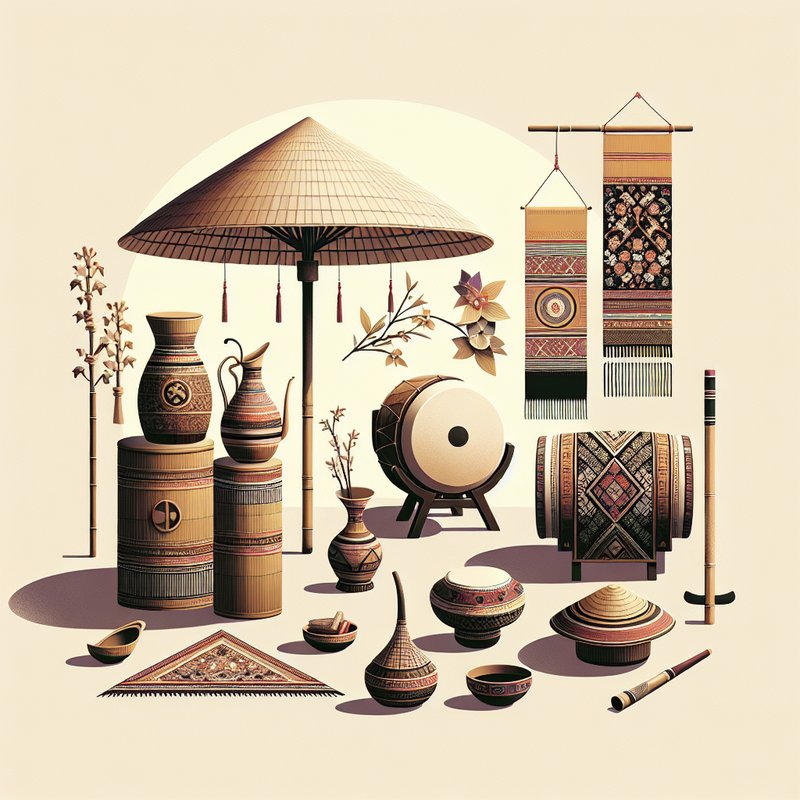The Richness of Cultural Diversity

Vietnam is home to over 54 ethnic groups, each with its own language, customs, and traditions. This diversity is a reflection of the country’s complex history and geographical variations, from the mountainous regions in the north to the coastal areas in the south. Each ethnic community contributes to a vibrant national mosaic, enriching the cultural landscape of Vietnam.
For instance, the Hmong people, known for their colorful traditional attire and unique embroidery, display rich folklore and vibrant celebrations. Meanwhile, the Kinh, the majority ethnic group, predominantly influences the urban and coastal lifestyles, blending traditional Vietnamese culture with modern influences. This interplay creates a fascinating cultural dynamic that is visible in festivals, cuisine, and daily life.
Traditional Customs and Festivals

Traditional festivals among ethnic minorities are vital expressions of their unique identities and communal ties. Festivals like the Pha Luong Festival of the Muong people or the Tet Nhay Festival of the Tay offer glimpses into their historic roots and the supernatural beliefs that shape their lives. These celebrations are full of colorful costumes, traditional music, and dances that portray their rich cultural heritage.
Many of these festivals are not only about celebration but also serve as market days, where distinct handicrafts and foods from each ethnic group are exchanged. They become opportunities for communities to come together, fostering unity and collaboration among various ethnicities, while also allowing travelers to immerse themselves in local traditions.
Cultural Preservation and Challenges

With the pace of rapid urbanization and globalization, many ethnic communities in Vietnam encounter significant challenges in preserving their cultural heritage. Traditional practices that have been passed down through generations may face dilution as modern influences permeate daily life. Additionally, the diverse languages spoken by these groups are at risk of extinction, threatening the very essence of their identities. However, various initiatives have emerged, both from governmental and non-governmental organizations, to support these communities in safeguarding their cultural identities. These efforts often focus on education, encouraging local youth to learn traditional skills, and promoting local arts and crafts, ensuring that their unique heritage continues to thrive amidst changing times.
Encouraging younger generations to learn their traditional skills, art forms, and dialects is essential for sustainability within Vietnam’s ethnic communities. This not only helps to maintain their unique cultural identities but also instills a sense of pride and connection to their heritage. Families and elders play a crucial role, sharing stories, practices, and knowledge with the youth, which fosters a deeper appreciation for their roots.
Moreover, creating programs and workshops that focus on traditional crafts, music, dance, and language can engage young people in meaningful ways. In light of the rapid modernization and globalization occurring in Vietnam, such initiatives ensure that these vibrant customs do not fade into oblivion. Striking a balance between modern influences and cultural preservation allows ethnic minorities to adapt while remaining rooted in their rich traditions.
The Role of Tourism in Cultural Exchange

Tourism plays a pivotal role in promoting cultural exchange and raising awareness about the diverse ethnic groups in Vietnam. Responsible tourism encourages respectful engagement with local communities, allowing travelers to experience authentic cultural interactions. This can lead to economic benefits for ethnic minorities through sustainable tourism practices.
It is crucial for travelers to approach their journeys with a sense of sensitivity, taking the time to understand the customs, traditions, and rights of the communities they are visiting. Engaging with local people in a respectful manner enriches the travel experience and strengthens connections between different cultures. Initiatives that focus on community-based tourism serve as a bridge, ensuring that the benefits of tourism are shared fairly among local populations and that their cultural integrity is preserved. By promoting responsible travel practices, we can foster long-term relationships between travelers and local communities, leading to a more enriching experience for visitors while supporting the livelihood and heritage of the people of Vietnam.

Leave a Reply